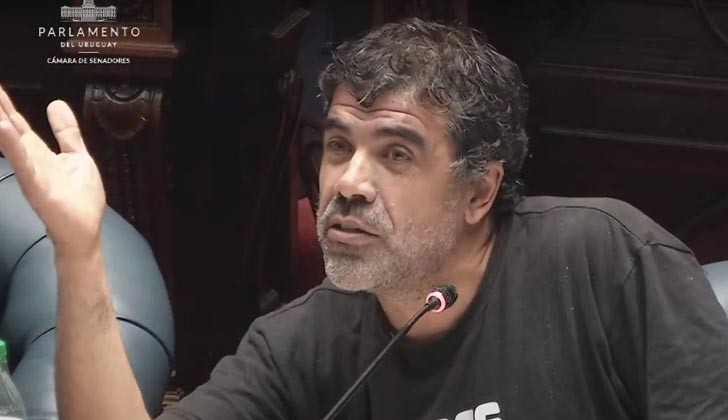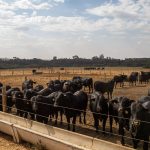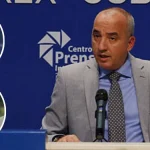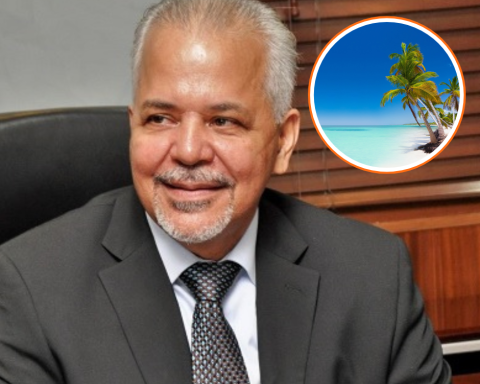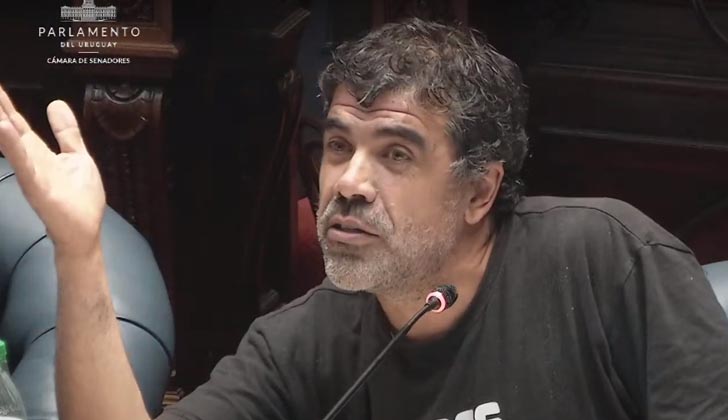
This Wednesday, April 6, the senator and leader of Cabildo Abierto, Guido Manini Ríos, made a presentation in Parliament referring to the 50th anniversary of the declaration of internal war by Parliament, which generated a strong debate among legislators.
Manini Ríos pointed to the actions of the Tupamaros at the beginning of the 1960s, as a preponderant factor for the civic-military coup to occur in 1973.
The words of the legislator of Cabildo Abierto generated the reaction of the Broad Front bench that raised its vision on the historical facts.
In this sense, the senator of the Communist Party, Oscar Andrade, responded that State terrorism was a “human carnage”, and he needed to build a discourse that would legitimize it, that would be persuasive.
He quoted an editorial by Carlos Quijano in the weekly Marcha, under the title “This is how fascism began.”
Quijano expressed the most consistent thought of the non-Marxist left in the face of the violent anti-communist wave: “There is a conspiracy against freedom, a shadowy enterprise of destruction of reason and degradation of the spirit (…) Anti-communism, like anti-Semitism, like racism they respond to the same hidden constants. The demagogues, all the demagogues, know it or sense it or suspect it. The fight against the essential equality of men, has been here in our America, all the centuries that extend from the conquest and in the modern world it covers the entire colonial period. Obscure, clouded anti-communism is the modern form of reaction against all renovations, against everything that breaks the established categories, the imposed rites, the established molds. That anti-communism of today is the anti-anarchism of yesterday, the anti-republicanism of the day before yesterday, the anti-democratism of the day before yesterday.”
Andrade recalled that such an editorial by Quijano was written on August 18, 1961, the day after the assassination of history professor Arbelio Ramírez.
To reaffirm his position against Manini Ríos, the communist legislator said that already in October 1960 fascist gangs tried to occupy the University of the Republic, in 1957 there were already martyrs of the meatpacking industry and in 1955 they assassinated María del Carmen Díaz in the strike from Ferrosmalt.
He recalled that “in September 1962 they burned down a Communist Party premises with the tragedy that a five-month-old baby died on fire.”
He referred to other murders of social activists in demonstrations, to the political violence that preceded the process of accelerating the suspension of individual freedoms after the inauguration of Jorge Pacheco Pacheco and continued with prompt security measures.
He recalled the ten imprisoned union leaders and the first injured students, in addition to the death of Líber Arce, all in 1968.
Andrade mentioned the death squads and the institutional support they received from the State. “All those events preceded the circumstance of the internal state of war and began long before the assault on the Swiss Shooting Club by the MLN-T.
He questioned the statements of Manini Ríos referring to the fact that in the 1971 elections there was free choice “We had the Brazilian Army on the border, an attempt was made to assassinate Líber Seregni and in Castillos a child was killed with a bullet to the forehead. Were those the free elections of 1971, and the people choosing freely in a democracy?
He also rejected the idea that the Armed Forces began to participate in politics because of an editorial in El Popular, because that “is delusional.”
He noted that the coup d’état of June 27, 1973 “came to cut through the jugular a process of accumulation of force of the people.”
“It is not possible to continue insisting on the coup d’état as a result of a guerrilla war that had already been liquidated a year before, and confront the discourses that supported the human butchery operation that meant the 12 most brutal years of State terrorism.
Andrade said that there is no possible reconciliation between fascism and democracy.
Domenech in dictatorship
He recognized that already in the dictatorship all political parties were repressed, and in the defeat of the dictatorship democrats of all parties also participated. “But, it is difficult to find in Uruguay a political party that has paid the highest price in dictatorship, in prisoners, victims and disappeared than the Communist Party of Uruguay. We are far from the lesson about democracy being given to us by those who participated in the dictatorship by summarizing teachers,” said Andrade, referring to the senator of the Cabildo Abierto, Guillermo Domenech.
For his part, Domenech clarified that he was not a prosecutor of the dictatorship, but of a public body of which he was an attorney.
